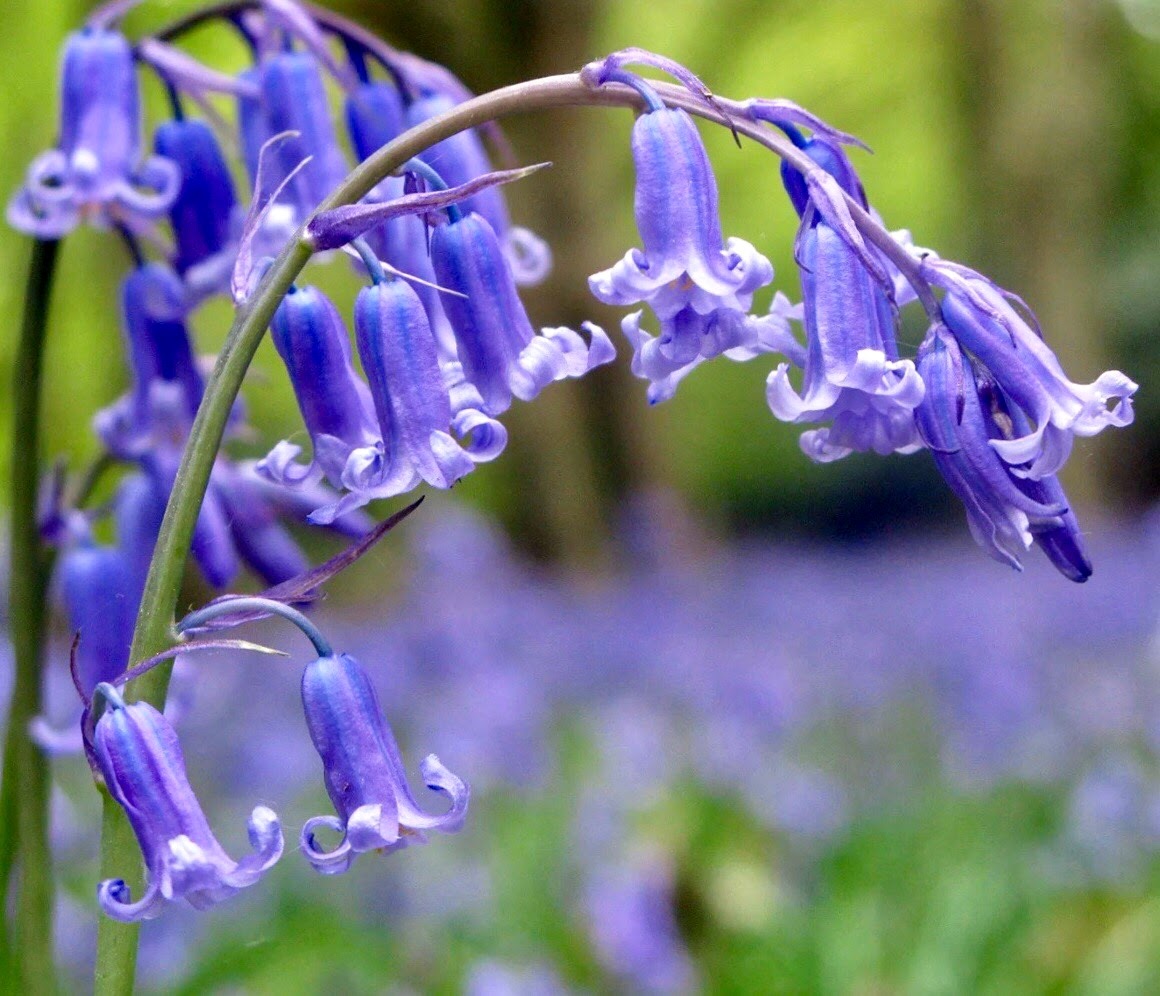- You have no items in your shopping cart
- Subtotal: £0.00

Everything You Need To Know About English Bluebells
Background
Beautiful and enchanting, bluebells are classic and a sign that spring is in full swing. They blossom in the mid-late spring and typically grow up to 25-30cm.
Also known as hyacinthoides non-scripta, english bluebells are great naturalisers that last up to 5 weeks or more, and they multiply impressively every single year. They’re native to western Europe and are associated with ancient woodland, particularly in moderately fertile and moist soil.
They also grow along hedgerows and in fields, creating a delightful blue blanket of flowers, often associated with the spring season.
Did you know? It takes at least five years for a seed to develop into an English Bluebell bulb, making it a very slow grower.
Appearance
English bluebells are usually a deep violet-blue colour, and it’s petals are bell-shaped with up-turned tips. They grow six petals and are incredibly sweet-smelling, boasting a creamy white-coloured pollen inside.
Some bluebell flowers can be white or pink.

Uses
Many insects reap the benefits of bluebells, such as butterflies, bees and hoverflies that all feed on the nectar. The bees will sometimes ‘steal’ the nectar from the flowers, by biting a hole in the bottom of the bell.
In the past, bluebells have been used for a variety of different things. Their sicky sap was once used to bind the pages of books, and in the Elizabethan period their bulbs were crushed to make starch for the ruffs of collars and sleeves.
Due to their toxicity, there isn’t much use for bluebells in modern medicine. However, research on how these flowers could potentially help fight cancer is still ongoing.
Other fantastic facts…
The first bluebells are believed to have appeared in Britain after the last ice age.
There are rare ‘albino’ bluebells which are white as they lack the blue pigment.
Bluebells are poisonous and contain compounds to defend themselves from animals and insect pests.
Bluebells are also known as ‘fairy flowers’, as according to myths they trap and lure people passing in the woods!
Treat your garden to some English Bluebells this spring – https://woodland-bulbs.co.uk/product/english-bluebells/



